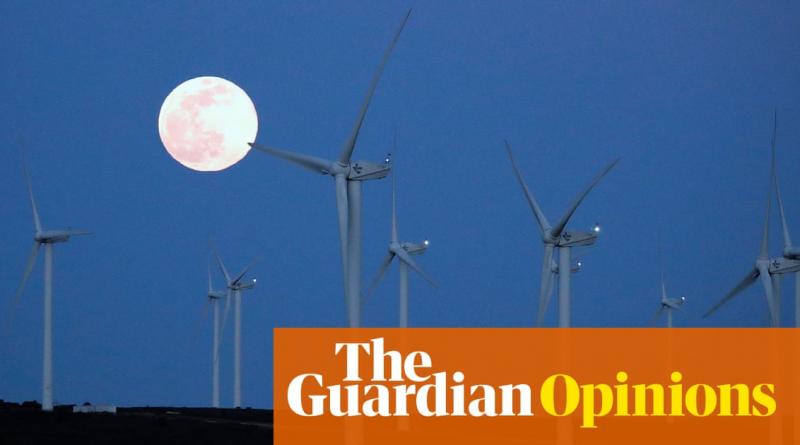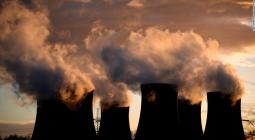Tackling climate change is vital for the strongest economic recovery after coronavirus.

The Covid-19 pandemic is a harbinger of climate disasters to come and the resilience we need to build into our systems.
Recovery from coronavirus must reckon with climate change. The current and urgent focus properly needs to be flattening the curve and saving lives.
Yet even as this overriding priority absorbs us, governments now need to be thinking about how to support the strongest possible recovery as we emerge from this crisis.
The prime minister, Scott Morrison, underscores we are in both a health and economic crisis. In dealing with the former we cannot lose a generation to the latter.
Focus on recovery must be on maximising economic growth and jobs, and ensuring this includes everyone. This was the guiding star that steered the international response to the global financial crisis.
I was advising the prime minister Kevin Rudd at that time and saw first hand just how much foresight, coordination and effort was required for success. This is much worse, and so will demand so much more.
Reckoning with climate change will support a strongest possible recovery. The threat of climate change that is driving global action against it has not gone away. Indeed, the Covid-19 pandemic is a harbinger of climate disasters to come and the resilience we need to build into our systems – including health – to deal with what we know will be the adverse impacts of climate change.
We know that unless we address this challenge, we will all be worse off; and the longer we take in addressing the challenge, the worse it will be. Just as Covid-19 requires us to act now to save lives in the next few weeks, climate change requires action now to avert a future global catastrophe. The logic of climate action has increasingly applied to global economic activity since the Paris agreement and must continue to underpin the investment decisions governments make going forward.
Decisions that support the strongest possible recovery in growth will help to shape the future of the Australian economy. We must ensure these pathways to the future do not lock-in those that lead to damaging dead-ends: higher emissions and less climate resilience down the track to our economic, environmental and community disadvantage. Borrowing, as we are, from our kids to fund the billions in recovery stimulus, we cannot further burden them with such dead-ends.
Significantly, climate related investments in many cases will offer the best prospects for economic growth and jobs. On that basis alone they should be prioritised. The OECD report Investing in Climate, Investing in Growth demonstrated this in detail for the G20 in 2018.
For example, they provide options for major infrastructure investments which should be a bedrock of government stimulus for recovery: clean energy and new transport systems, more sustainable homes and buildings, improved agricultural practices water and waste management.
In short, if banks will not finance new coal-fired power in Australia but will lend for renewable energy and storage, which would you tend toward, and where then are the growth and jobs, and best place for stimulus?
Corporates are increasingly working this out. There were a slew of announcements over summer largely subsumed by our preoccupation with drought, bushfires and pandemic. They show business banking on climate smart investment for growth.
The most significant example was BlackRock announcing a game-changing move to place sustainability at the centre of its investment approach because the returns to investors will be greater. BlackRock manages over US$7tn of assets, meaning other large asset managers will follow, as happened days after the announcement when State Street – managing US$3tn – went the same way.
As corporates are now integrating climate change as core business strategy, so should governments as core economic strategy, not least for recovery.
We know where such investments can be made. They are not hypothetical, whether outlined in CSIRO’s excellent technology roadmap for a low-emissions Australian economy, or Ross Garnaut’s recent excellent book on the growth opportunities Superpower: Australia’s Low Carbon Opportunity or last week’s inspiring report by Climate Works on de-carbonising Australia’s future, or presumably in the government’s forthcoming low-emissions technology roadmap for Australia.
We are not short on ideas, including on climate resilience.
An obvious starting point could be a nation-building stimulus investment around our decrepit energy system. By now the federal and state governments have a much stronger grasp of what we need for success, encouragingly evident on the recent $2bn federal-New South Wales government package for better access, security and affordability.
Turbocharging this with a stimulus package for more renewable energy and flexible storage of all sorts (including hydrogen), accompanying transmission and security technologies for our electricity grid, and investment in dramatically improving energy efficiency would – literally and figuratively – power our economy forward.
Not just for the growth and jobs in this sector alone but in the scope provided to power other sectors for growth, such as electrifying transport across the country – which stimulus could also spur.
In the aftermath of our drought and bushfires, another obvious area for nation-building investment is our land sector. Farm productivity can be dramatically improved by precision agriculture and regenerative farming technologies while building resilience to drought.
New sources of revenue for farmers can be created through soil carbon and forest carbon farming – with carbon trading from these activities internationally set to be worth hundreds of billions of dollars over the coming decade. These solutions and sources of growth and jobs can be harvested now with a little government support, keeping farmers on their land and regional communities thriving.
In these times of despair this prospect holds out great hope. Showing it is not a dream, the EU has already said its recovery stimulus will invest in climate for growth and jobs. We should too.
-
Patrick Suckling was Australia’s ambassador for the environment, is a senior fellow at the Asia Society Policy Institute and senior partner at Pollination, a specialist climate investment and advisory firm
14 April 2020
The Guardian






